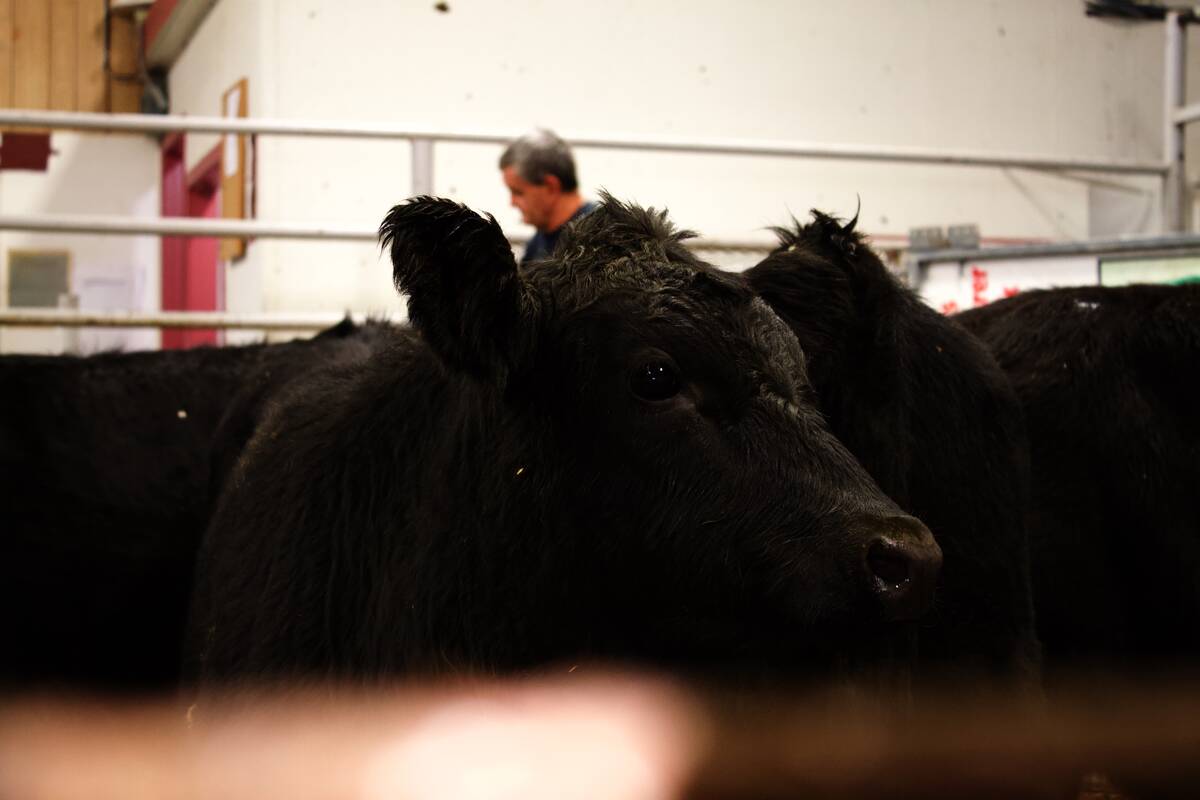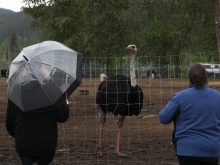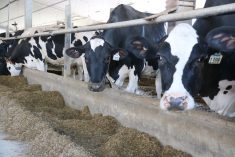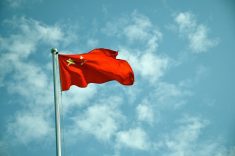Milk pickups are resuming for some southern British Columbia dairy farmers, days after flooding and landslides caused by a days-long rainstorm cut off vehicle traffic through the region.
In the wake of the Nov. 14-16 storm, with trucks unable to reach farms, the B.C. Milk Marketing Board on Nov. 16 asked that affected dairy farmers dispose of raw milk into their manure pits, in line with their usual pickup schedules — a request which still stands for some.
Read Also

U.S. livestock: Chicago cattle and hogs slide back
Chicago Mercantile Exchange cattle and hog futures slipped back on Tuesday. Most-active April live cattle contracts lost 0.775 cents to…
As of Monday, pickups continue as usual for dairy producers on Vancouver Island with “limited disruption” — as well as for producers in the Creston and Kootenays regions, whose product can be trucked to Alberta for processing, the board said in a notice to farmers.
Normal pickup has also resumed for dairy farmers in the B.C. Interior — but with a few exceptions who’ve been informed to dispose of their milk. Organic producers in that region will also have to continue disposal “until further notice.”
At Chilliwack and in the Agassiz region east of the Woodside mudslide, “most” producers are back on their normal schedules for pickup “although there may be delays,” the board said Monday.
If pickups don’t occur, farmers in those regions are still asked to dump their milk every other day at intervals corresponding to their “normal” pickup schedules, just prior to the milking after their “normal” pickup timing. Farmers running out of manure storage are asked to contact the B.C. Milk transport department.
In the Prince George, Bulkley Valley and Smithers areas, milk still will not be picked up until further notice, the board said — with a few exceptions who can expect pickups “based on limited resources,” given the limited roads available to enter the Lower Mainland for milk delivery, and limited access to Alberta.
Many dairy farms at Abbotsford, in the Sumas Prairie area, have been subject to a boil water advisory since Thursday, meaning “we cannot pickup your milk until after the… advisory is lifted,” the board said.
Once the advisory is lifted, farmers in that area are asked to dispose of all milk in their bulk tanks, “immediately” clean and sanitize those tanks using potable water, and then start filling again before pickups can resume. Then, pickups will still be “determined by accessibility” to the farms.
That said, the board added Monday that in consultation with the provincial agriculture ministry, the use of home test kits to check water potability — specifically, to test for E. coli and coliform — will be accepted.
“It is a good option to have, especially for farms on the boundary of the boil water advisory area map,” the board said Monday.
Also, in any cases where a dairy farm was flooded and the farmers are returning to the property, “make sure you are co-ordinating with your equipment dealers,” the board said, as the provincial ag ministry “will need the sign-off from your equipment dealers before they will approve the shipment of milk again.”
‘Combination of problems’
The effects of the storm have also been felt at the processing level. Dairy co-operative Agropur, in a statement Monday, said it’s “working all-out to maintain operations” at its Burnaby and Victoria processing plants.
Agropur said it’s “coping with a combination of problems with raw milk supply, the availability of refrigerated transport equipment, and of course the state of the roads,” but “overall production and delivery levels of high-volume products have been maintained, with the support of the production team at our Edmonton plant.”
“Our teams are fully committed to maintaining operations, meeting the demand and finding ongoing solutions to get our products to the shelves at all retailers and institutional customers,” Agropur CEO Emile Cordeau said in the company’s statement.
In a separate notice last Wednesday, the milk marketing board also warned that while some farmers may “want to provide aid to the public and help their community during the current crisis and may be tempted to distribute raw unpasteurized milk directly to the public,” producers who do so are at risk of having their production licenses cancelled or suspended.
Directly distributing raw unpasteurized milk “may compromise safe consumption and the standard of high-quality milk for the industry, while adding other implications,” the board said.
Also, in a separate notice Friday, the board said it “understand(s) the challenge of the unknown many producers are feeling while we attempt to recover” and truckers and board staff “are working at all hours to get your milk picked up, but we cannot yet feasibly pickup all farms due to flooding, roadways, and resource constraints.”
For that reason, the board said, “we cannot tolerate any abuse towards any staff of the board or our transporters and ask that all producers remain respectful in all communications.” — Glacier FarmMedia Network















